Nigeria Strengthens 2030 Commonwealth Games Bid as Evaluation Committee Visits Abuja Nigeria’s aspiration to make history as the first African nation to host the Commonwealth Games advanced on Thursday with the visit of the Commonwealth Sport Bid Evaluation Committee to Abuja. President Bola Tinubu, represented by his Chief of Staff, Hon. Femi Gbajabiamila, received the
Nigeria Strengthens 2030 Commonwealth Games Bid as Evaluation Committee Visits Abuja

Nigeria’s aspiration to make history as the first African nation to host the Commonwealth Games advanced on Thursday with the visit of the Commonwealth Sport Bid Evaluation Committee to Abuja. President Bola Tinubu, represented by his Chief of Staff, Hon. Femi Gbajabiamila, received the delegation at the State House and reiterated the government’s firm commitment to delivering a world-class 2030 Commonwealth Games.
The visit marked a critical stage in the evaluation process, as Abuja faces stiff competition from Ahmedabad, India, in the bid to host the Games. The delegation, led by Darren Hall, Director of Games and Assurance at Commonwealth Sport and a member of the 2030 Evaluation Commission, held strategic talks with senior Nigerian government officials, including ministers and sports administrators.
Buhari Loyalists Back Atiku Ahead Of 2027: A Political Realignment Shakes APC
Tinubu Pledges Full Support for Historic Bid
Speaking on behalf of the President, Gbajabiamila reassured the Commonwealth representatives that Nigeria was determined to host the Games, not only to showcase Africa’s capacity but also to leave a lasting legacy. He emphasized that the President had issued a formal Letter of Guarantee, symbolizing the administration’s total support for the bid.
“You’re very welcome to Nigeria. I hope you enjoy our great hospitality, which we are known for. Mr. President also asked me personally to convey his regards; he fully supports this bid,” Gbajabiamila stated.
He further stressed the historic significance of the bid, noting that the Commonwealth Games, which began in 1930, have never been hosted on African soil. “It’s been almost 100 years. The Games have not been held on any soil in Africa. The element of inclusivity is what the Commonwealth is, and we hope that will benefit us,” he added.
President Tinubu underscored that sports are central to his administration’s vision for national development. He highlighted recent reforms, including the scrapping of the Ministry of Sports and the establishment of the National Sports Commission, aimed at strengthening sports governance and development. He assured the Evaluation Committee that Nigeria would meet all infrastructural, security, and hospitality requirements ahead of schedule.
Nigeria Makes the Case for Africa
The Nigerian delegation mounted a strong argument for hosting the 2030 Games, highlighting Africa’s longstanding exclusion. Chairman of the National Sports Commission, Shehu Dikko, stressed that with 22 Commonwealth countries on the continent, it was time for Africa’s turn. He insisted that Nigeria, as Africa’s most populous country and sporting powerhouse, was best positioned to deliver a successful Games.
“One thing I want to assure you is that the President sees the hosting of the Commonwealth Games in 2030, if we win the bid, as a celebration of the country’s growing force in sports, beyond just participation,” Dikko noted.
Mainasara Illo, Chairman of the Bid Committee, presented Nigeria’s comprehensive proposal, which included plans to feature 15 sports. Significantly, football was added to the lineup, with the aim of boosting excitement, global visibility, and fan engagement. Illo emphasized that Nigeria’s proposal placed a premium on innovation, inclusivity, and sustainability.
On his part, Habu Gumel, President of Commonwealth Sport Nigeria, affirmed that the country was prepared to host an environmentally sustainable Games that aligns with global standards.
Evaluation Committee Impressed with Nigerian Passion
Darren Hall, who led the Evaluation Committee, expressed appreciation for Nigeria’s warm welcome and enthusiasm. He noted that the Commonwealth, now comprising 56 nations, is striving for greater diversity as it approaches its centenary.
“I have been most thrilled by the passion of the Nigerian people in all their endeavours, including sports,” Hall remarked. His statement suggested that Nigeria’s bid had already made a strong impression on the committee.
The meeting was attended by key federal ministers, including Muhammed Idris, Minister of Information and National Orientation; Festus Keyamo, Minister of Aviation; Hannatu Musa Musawa, Minister of Art, Culture, Tourism, and the Creative Economy; Ahmed Musa Dangiwa, Minister of Housing and Urban Development; and Ibrahim Gaidam, Minister of Police Affairs. Each minister reaffirmed the government’s collective commitment to ensuring that Abuja delivers an exceptional Games if selected.
India Versus Nigeria: The Road Ahead
Nigeria and India remain the only official bidders for the 2030 Commonwealth Games. Abuja and Ahmedabad, Gujarat, have both been proposed as host cities. While Nigeria’s argument rests heavily on the need for Africa to finally host the Games, India is expected to showcase its extensive sporting infrastructure and track record of hosting major international competitions.
The Commonwealth Games General Assembly will evaluate both bids thoroughly before making its final decision in November 2025. Until then, Nigeria is expected to continue mobilizing support, both within Africa and across the wider Commonwealth, to strengthen its chances.
Nigeria’s bid to host the 2030 Commonwealth Games represents more than just an attempt to stage a major sporting event. It is a bold statement about Africa’s rightful place on the global sporting map. With President Tinubu’s administration pledging full political, financial, and infrastructural support, Abuja’s case is stronger than ever.
If successful, the 2030 Commonwealth Games will not only be a historic first for Africa but also a transformative milestone for Nigeria, offering opportunities for youth empowerment, economic growth, and international recognition. As the world awaits the decision in 2025, Nigeria’s determination to deliver an inclusive, world-class Games remains steadfast.



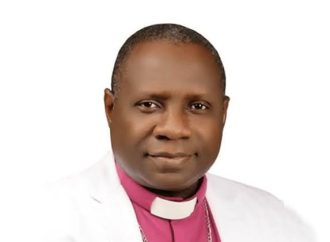
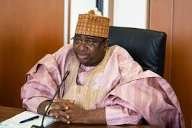
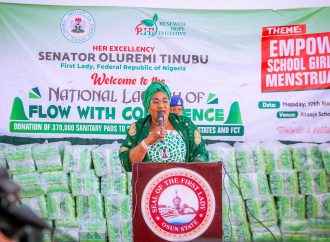
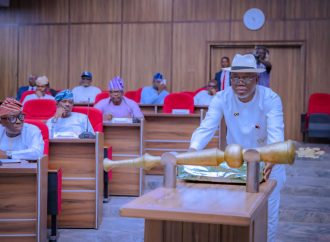
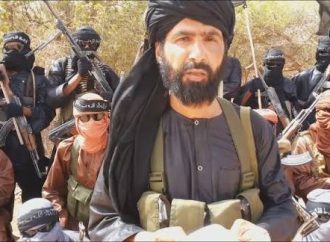



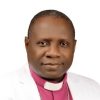
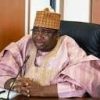
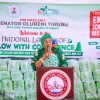





Leave a Comment
Your email address will not be published. Required fields are marked with *